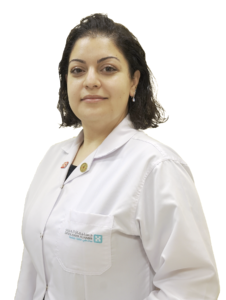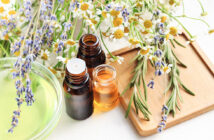Your common questions on winter-related health problems answered by Dr. Gracia Hamadeh (Family Medicine Senior Specialist), and Dr. Ali Chemali (Pediatric Specialist) at the Dr. Sulaiman Al Habib Medical Center — Diplomatic Quarter.
 What are the most common health conditions, during winter, in Saudi Arabia?
What are the most common health conditions, during winter, in Saudi Arabia?
A. Influenza
The flu or seasonal flu is an infection causing fever, cough, and body pains. The most common type of flu is the “seasonal” flu. Prevention is key! Make sure you often wash your hands with soap and water, especially when outdoors and during this pandemic. During crowds, attempt to stay at a distance from suspected sick people and keep your surgical mask on. And lastly, schedule your flu vaccine appointment around September to November at your nearest health center. The flu vaccine remains the safest measure to protect you from severe degrees of flu illness and complications such as heart and lung diseases, and death.
B. Asthma and Chronic Obstructive Pulmonary Disease
To keep your lungs healthy and your breathing at ease, make sure you follow these steps:
▪ Avoid smoking. If you smoke, get help from your doctor to quit.
▪ Do not miss out on your regular walk or jog. Keep your rescue inhaler and a loose scarf around your neck with you before your workout. Exercise will improve your breathing.
▪ Keep your mattresses and pillows dust free.
▪ Get a dehumidifier or air conditioner to keep indoor air dry.
▪ If you are allergic to animals or insects, avoid exposure.
▪ Keep your windows and doors closed whenever you can during pollen season.
▪ If you are under work or family stress, seek a doctor’s help.
▪ Get your flu vaccine and your streptococcus vaccine after consulting with your doctor.
▪ If you feel any palpitations, shortness of breath during rest or exercise, night sweats, fever or dizziness, do not hesitate to call your doctor to examine your chest and heart equally.
What conditions worsen during winter? And how can we manage them?
A. Heart and Brain-related Conditions
It is well known that the total mortality in most populations is higher in winter than in summer, whereby the most common death cases are from coronary heart disease, cerebrovascular accidents, and respiratory diseases. Keep an eye on your regular medical checkups with your doctor to optimize treatment, improve lifestyle parameters, and prevent death during the cold weather.
B. Mental Health Conditions
Seasonal Affective Disorder is a type of depression that occurs during season change. Elderly people, especially, may have trouble leaving their house due to weather change, thus worsening their anxiety and preventing them from normal life routines. Keeping an eye on suicidal thoughts is wise. Help yourself or those suffering by practicing self-discipline with a daily routine of outdoor activities, ensuring proper natural lighting in the indoor areas, and maintaining social communication with family and friends.
C. Skin Conditions
During cold weather, we worry about skin numbness and cuts in diabetes and skin infections and dryness in those with eczema and psoriasis. We recommend you keep your skin hydrated inside out. Get your stock of petroleum jelly, hand creams, and your favorite water bottle close by.
D. Joint Diseases
Cold weather triggers joint pain or arthralgia in those suffering from osteoarthritis, rheumatoid arthritis, calcific tendonitis, and other degenerative joint diseases.

Is it safe for young children to play outside like in parks during the winter? Kindly give some ways that we can follow to ensure their safety.
▪ Layer up! Bitter cold can cause frostbite. Dress your child in several layers, and make sure their head, neck, and hands are covered. Dress babies and young children in one more layer than an adult would wear.
▪ Play it safe. Even when roads are closed to traffic, it’s not safe to play or sled in the street. Visibility may be limited due to fog on the roads making braking difficult.
▪ Check in on warmth. Before kids head outside, tell them to come inside if they get wet or if they’re cold. Then keep watching them and checking in. They may want to continue playing outside even if they are wet or cold.
▪ Keep them hydrated. In drier winter air, kids lose more water through their breath. Offer plenty of water, and try giving them warm drinks and soup.
▪ Prevent nosebleeds. If your child suffers from minor winter nosebleeds, use a cold-air humidifier in their room. Saline nose drops can help keep their nose moist.
▪ Get trained and equipped. For children to avoid injuries, teach them how to do the activity safely.




